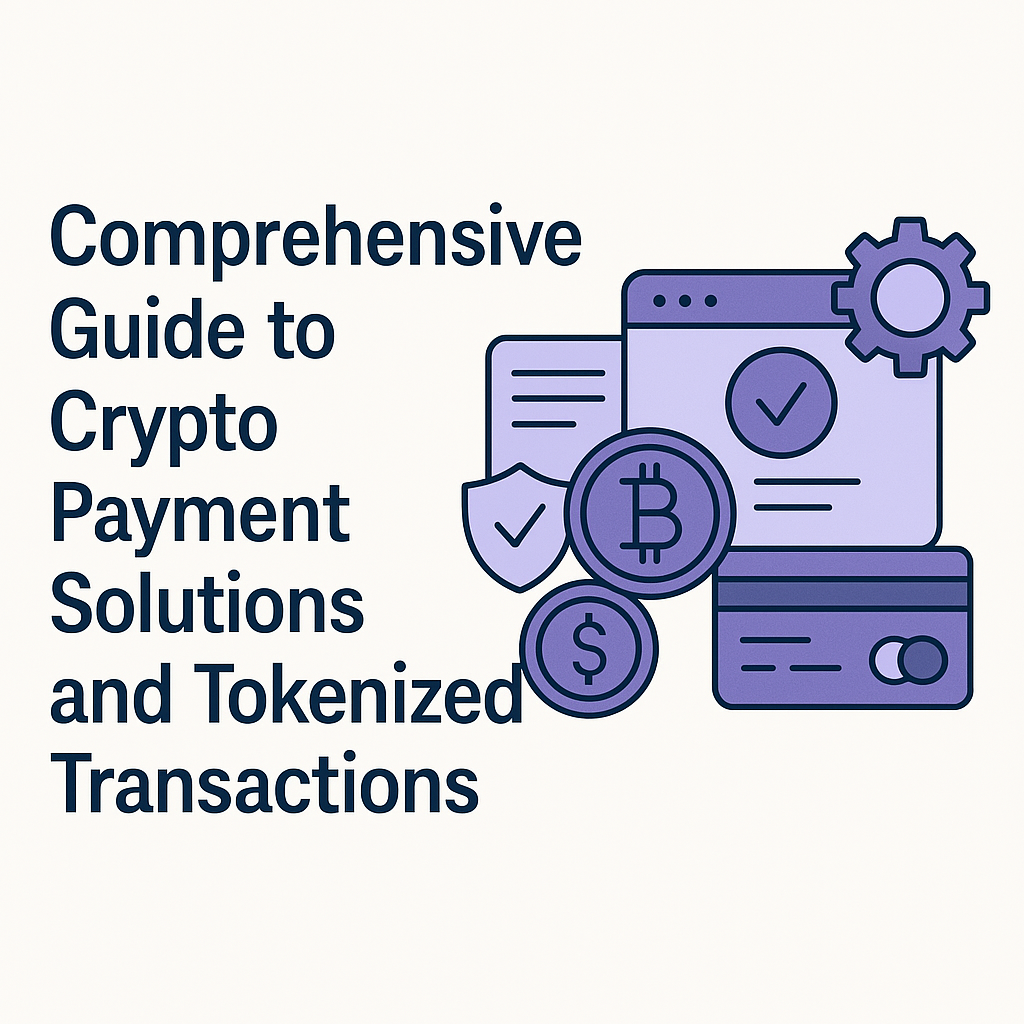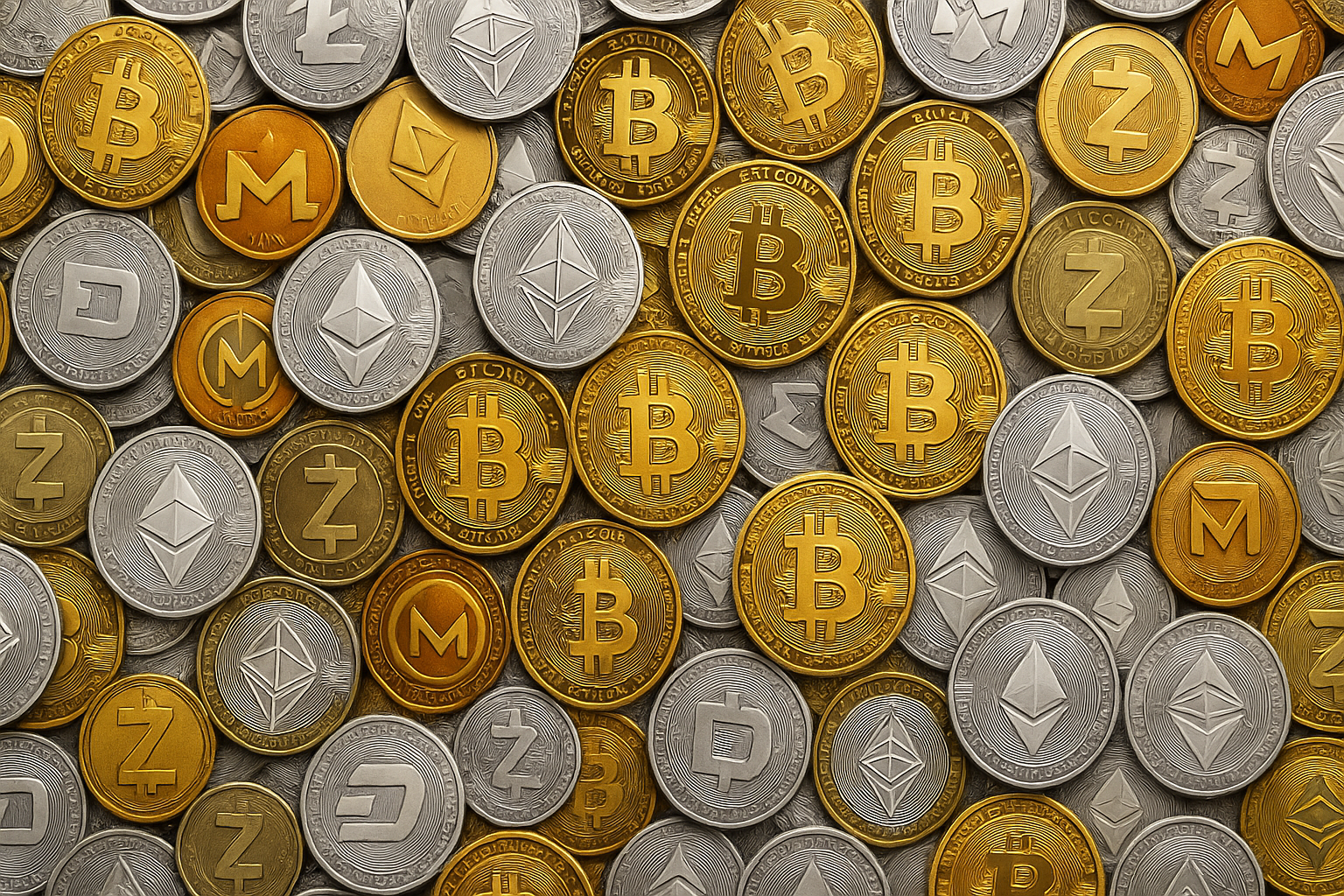Crypto Wallet: The Gateway to Digital Assets
11 июня, 2025 | by 16squaresmaster@gmail.com

Introduction
As the world of cryptocurrencies grows, one tool has become central to managing and securing digital assets: the crypto wallet.
Whether you’re a seasoned trader, a DeFi enthusiast, an NFT collector, or someone exploring crypto for the first time — your crypto wallet is your key to interacting with blockchain networks.
But what exactly is a crypto wallet? How does it work? What types of wallets are there, and how do you choose the right one?
In this article, we’ll answer these questions and provide a clear guide to understanding and using crypto wallets — the essential gateway to the world of digital finance.
What Is a Crypto Wallet?
A crypto wallet is a software or hardware tool that allows you to:
- store the cryptographic keys that control your cryptocurrency,
- send and receive digital assets,
- interact with blockchain applications (DApps),
- track your crypto balances.
Contrary to popular belief, a crypto wallet doesn’t «store» crypto inside it. Instead, it manages the private keys that grant access to your funds on a blockchain.
Private Key vs. Public Address
- Private Key: A secret string of numbers and letters that gives you full control over your crypto.
- Public Address: The «account number» you share with others to receive crypto.
Whoever controls the private key controls the crypto — which is why wallet security is so important.
How a Crypto Wallet Works
When you send crypto:
- The wallet signs the transaction with your private key.
- The transaction is broadcast to the blockchain network.
- Once confirmed, the recipient can access the funds via their wallet.
When you receive crypto:
- The sender sends it to your public address.
- The blockchain records the transaction.
- Your wallet updates your balance accordingly.
Types of Crypto Wallets
Crypto wallets come in various forms — each with pros and cons.
1. Hot Wallets (Software Wallets)
Hot wallets are connected to the internet and include:
- Desktop wallets (Exodus, Electrum),
- Mobile wallets (Trust Wallet, MetaMask Mobile),
- Web wallets (MetaMask Browser Extension, Coinbase Wallet).
Pros:
- Convenient and easy to use.
- Ideal for frequent transactions.
Cons:
- More vulnerable to hacking (connected to the internet).
2. Cold Wallets (Hardware Wallets)
Cold wallets store private keys offline on secure hardware devices:
- Ledger Nano X,
- Trezor Model T.
Pros:
- Very secure (offline storage).
- Suitable for long-term storage of large amounts.
Cons:
- Less convenient for frequent transactions.
- Requires an initial investment.
3. Paper Wallets
A printed copy of your public and private keys.
Pros:
- Completely offline.
- Immune to online hacks.
Cons:
- Risk of physical damage or loss.
- Not practical for everyday use.
4. Custodial Wallets
Third-party services (exchanges like Binance, Coinbase) manage your wallet and private keys.
Pros:
- Simple to use.
- No need to manage private keys yourself.
Cons:
- Less control — you don’t own the private keys.
- Risk if the provider is hacked or shut down.
Choosing the Right Crypto Wallet
The best wallet depends on your needs:
| Use Case | Recommended Wallet Type |
|---|---|
| Active trading | Hot wallet (desktop or mobile) |
| Long-term holding (HODL) | Cold wallet (hardware wallet) |
| Crypto payments | Mobile hot wallet |
| NFT collecting | Web wallet with DApp support |
| Beginner | Custodial wallet on a reputable exchange |
Key Features to Look for in a Crypto Wallet
- Security: Encryption, backup options, 2FA (for hot wallets).
- Private key control: Non-custodial wallets give you full ownership.
- Multi-currency support: Store and manage various cryptocurrencies.
- User experience: Intuitive design and ease of use.
- Compatibility: Support for DApps and NFTs (important for DeFi and Web3).
Popular Crypto Wallets
| Wallet | Type | Notable Features |
|---|---|---|
| MetaMask | Hot wallet | Web3 support, Ethereum ecosystem |
| Trust Wallet | Mobile hot wallet | Multi-chain, DApp browser |
| Ledger Nano X | Hardware wallet | High security, supports 1000+ coins |
| Trezor Model T | Hardware wallet | Open-source, secure chip |
| Coinbase Wallet | Hot wallet | Easy integration with Coinbase |
| Exodus | Desktop/mobile wallet | Intuitive interface, multi-asset support |
Benefits of Using a Crypto Wallet
1. Ownership and Control
With non-custodial wallets, you own your crypto. You’re not dependent on any third party.
2. Security and Privacy
Wallets allow you to:
- secure your private keys,
- control your data,
- make peer-to-peer transactions without banks.
3. Access to Web3
Modern wallets enable you to:
- interact with DeFi protocols,
- buy/sell NFTs,
- participate in DAOs,
- explore the emerging metaverse economy.
4. Global Reach
Crypto wallets work worldwide, providing access to financial services for the unbanked and underbanked populations.
Challenges and Considerations
1. Security Risks
- If you lose your private key, you lose access to your crypto — forever.
- Hot wallets are vulnerable to phishing, malware, and social engineering attacks.
2. Complexity
For beginners, crypto wallets can be intimidating:
- concepts like private keys, seed phrases, and gas fees require education.
3. Recovery and Backup
You must:
- securely back up your wallet’s seed phrase,
- store it offline in a safe place.
4. Scams and Fake Wallets
Always download wallets from official sources to avoid malware.
The Future of Crypto Wallets
The space is evolving fast:
- Account Abstraction (ERC-4337) will make wallets smarter and more user-friendly.
- Multi-chain wallets will enable seamless cross-chain transactions.
- Wallet-as-a-service will integrate crypto wallets into mainstream apps.
- Decentralized identity (DID) will link wallets to verified digital identities.
- Improved UX and onboarding will drive mass adoption.
We can expect:
- wallets that abstract away private key complexity,
- seamless fiat-to-crypto on-ramps,
- native support for DeFi and NFT applications,
- broader use of biometric security.
Conclusion
A crypto wallet is your gateway to the world of digital assets and decentralized finance.
It empowers you to:
- own and control your crypto,
- interact with Web3 applications,
- transact globally with speed and privacy.
Whether you’re a casual investor or a Web3 power user, choosing the right wallet and following best security practices is essential.
As crypto adoption accelerates, the wallet will become as essential as a smartphone or email account — the digital key to your place in the decentralized economy of the future.
RELATED POSTS
View all


